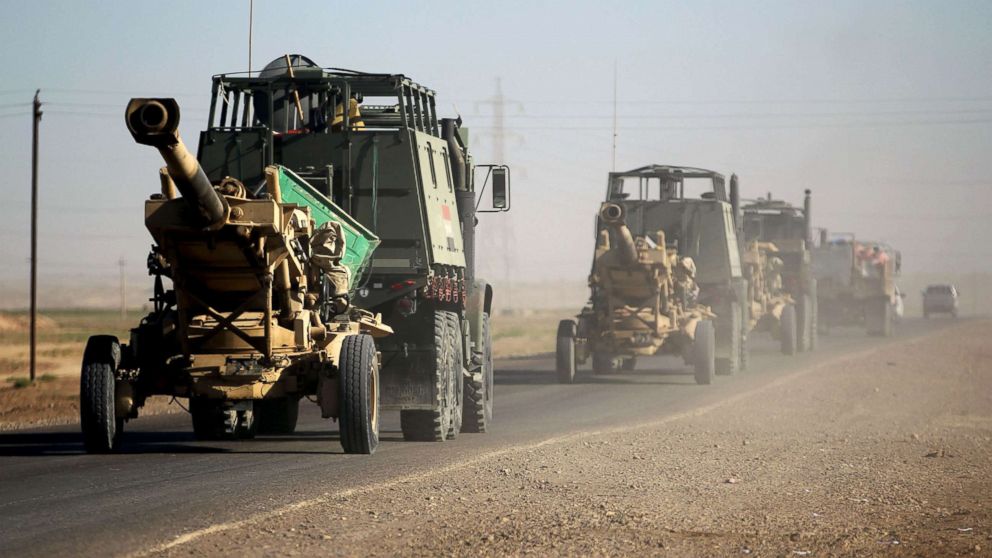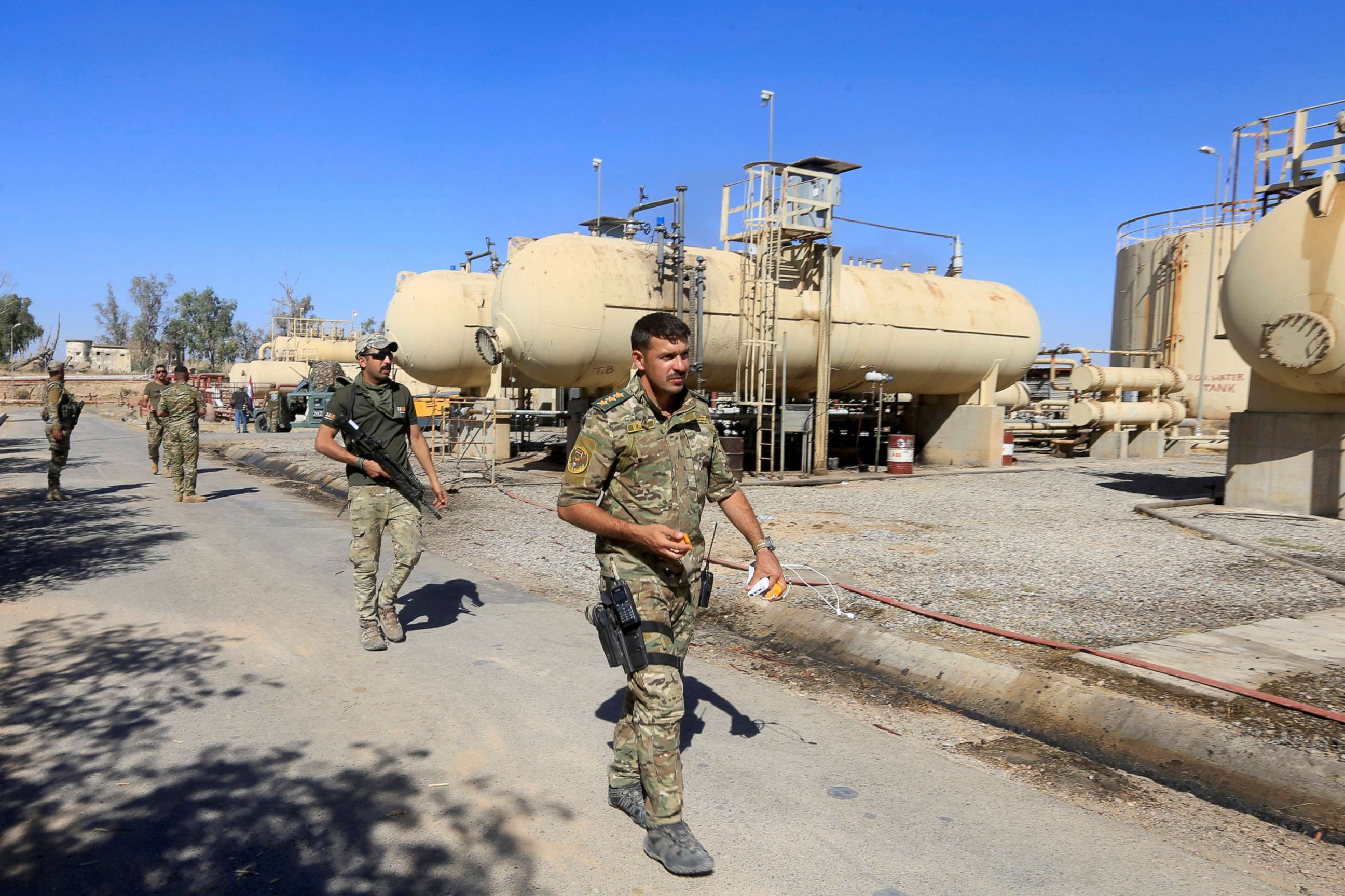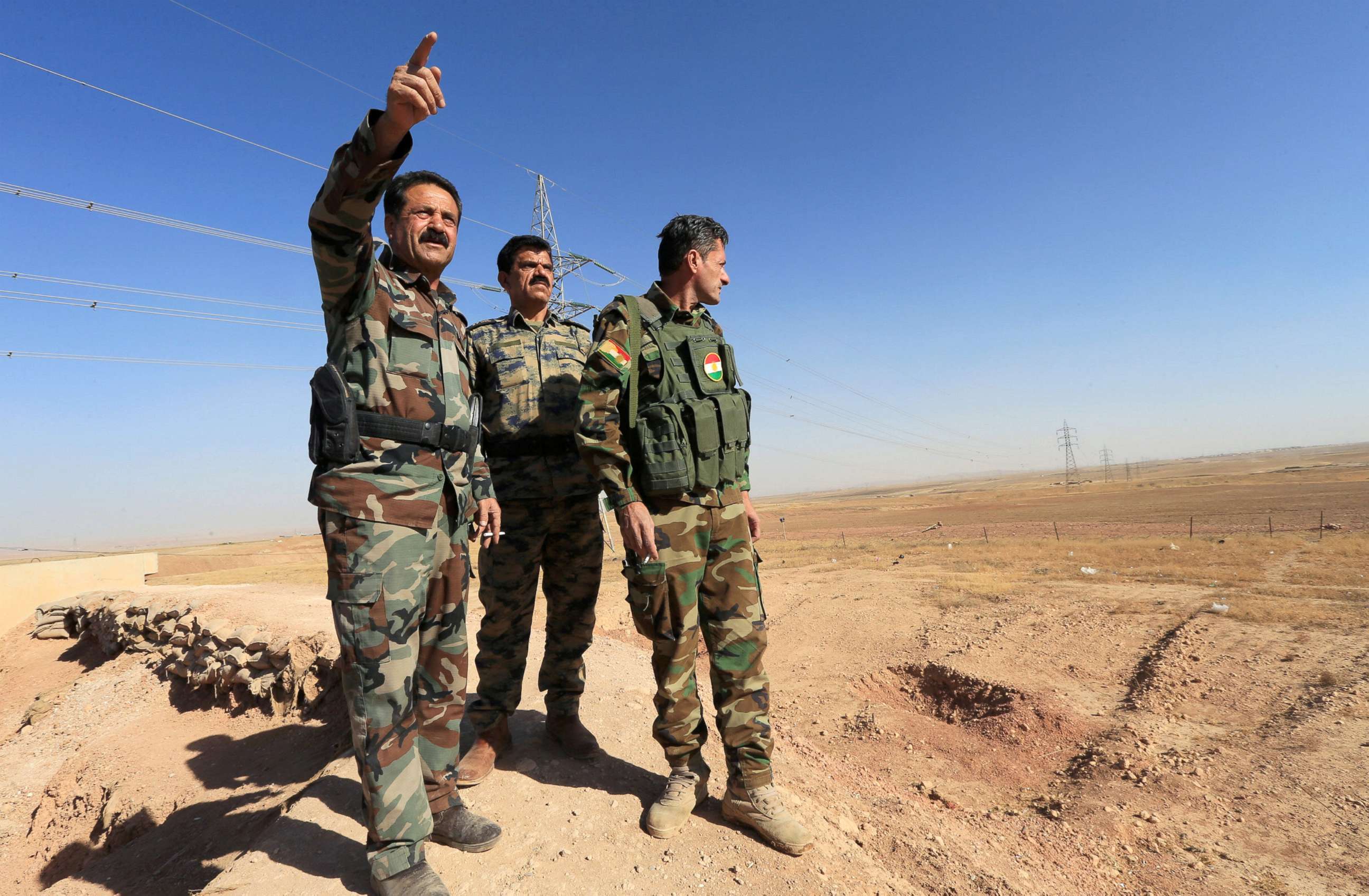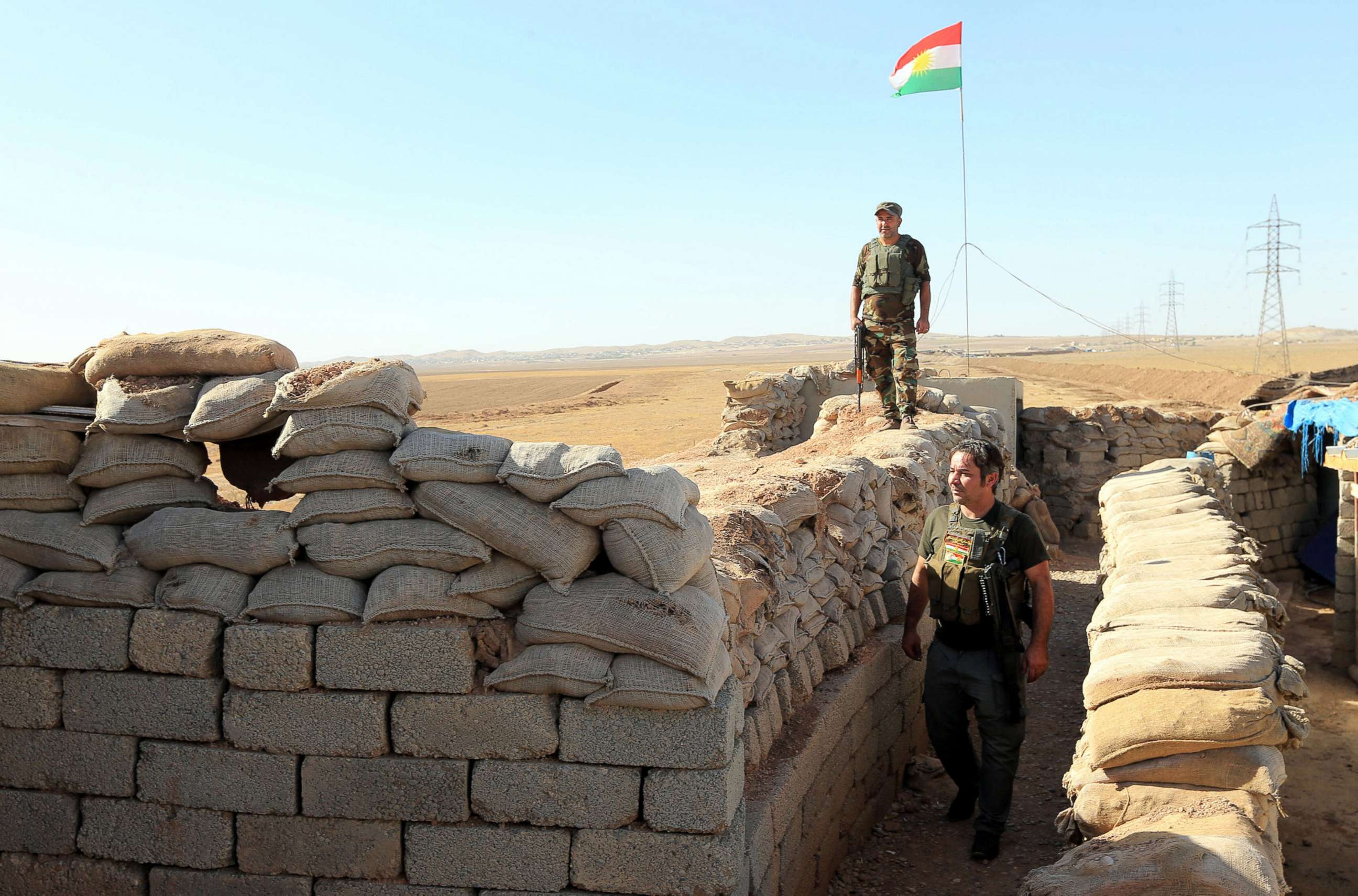Iraqi Kurdish independence gamble backfires
Instead of gaining independence, the Kurds have suffered historic setbacks.

— -- In ongoing standoff following a referendum for an independent state separate from Iraq, Kurds in northwestern Iraq have suffered significant losses, including areas that supply much of the region's revenue.
Iraqi Kurds lost another major territory on Tuesday to Baghdad, surrendering the town of Sinjar -- one day after losing the oil-rich Kirkuk.

Kurdish troops, known as the Peshmerga, abandoned the town to the Popular Mobilization Forces, an Iran-backed and predominantly Shia militia coalition that operates as part of the Iraqi security apparatus.
Iraqi forces have continued their advance on Peshmerga positions in disputed territories, exactly one year after the now-warring sides jointly launched the battle to retake Mosul from ISIS, backed by the United States.

The current confrontation between Iraqis and Kurds was spurred on by an independence referendum that the Kurdistan Regional Government (KRG) held in defiance of the government in Baghdad and against the advice of the international community.
Kurdish President Masoud Barzani and his ruling KDP party were determined to begin movement toward the long hoped-for Kurdish independence.
Instead, “KDP hubris has generated the greatest Kurdish setback since 2003” according to Emile Hokayem, senior fellow for Middle East security at the International Institute for Strategic Studies.
The spokesman for the U.S.-led coalition against ISIS, Colonel Dillon, told reporters on Tuesday that the current standoff is “distracting” from the war against ISIS.

But the losses for the Kurds, who have been reliable U.S. partners in the fight against ISIS, in these days of conflict have been substantial. Losing Kirkuk, which is responsible for 13 percent of Iraq’s oil production, is existential for Kurds; the KRG has barely any revenue without it.
Late Iraqi President and leading Kurdish politician Jalal Tabalani once referred to Kirkuk as their "Jerusalem." Yet military forces loyal to Tabalani's son and heir cut a deal with Baghdad and withdrew from their positions in the disputed city and nearby oilfields and airbase, facilitating an almost bloodless Iraqi takeover.
The United States has made brief statements calling for restraint, after it downplayed Kurdish warnings last week of an imminent attack by Iraqi forces. At a press conference on Monday, President Trump said, "The United States won’t take sides."
“Essentially, the United States has decided that supporting Iraqi Prime Minister Abadi and safeguarding him against more pro-Iran competitors in the upcoming Iraqi election is more important than the Kurds right now,” according to Dr. Renad Mansour, an Iraq research fellow at The Royal Institute for International Affairs in London, an independent think tank also known as Chatham House.
The General Command of Peshmerga Forces accused a special force unit in Iran’s Revolutionary Guard Corps (IRGC) of being part of the military operation in Kirkuk. President Trump had announced on October 13 that the United States was imposing new sanctions on the IRGC.
Forces loyal to Barzani surrendered Sinjar Tuesday, a town in north-western Iraq the Peshmerga took control of in 2014 after ISIS attacked and sexually enslaved its population, a minority known as the Yazidis. At the time, Barzani vowed never to leave.
They also retreated from the Bai Hasan and Avana oilfields north-west of Kirkuk, two crucial revenue sources for the KRG.
Two days after the Kurdish independence referendum was held, one of the demands made by the Iraqi Parliament to avoid a military escalation was that those oilfields and disputed territories be surrendered. At the time, Barzani's only public compromise was to call for dialogue.




